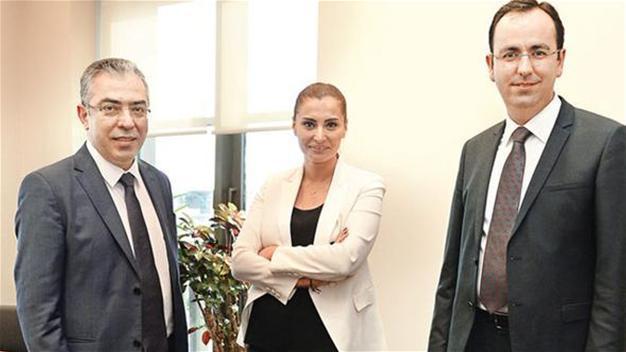Chief presidential advisor suggests electing deputies to represent Turkish citizens abroad
Erdinç Çelikkan – ANKARA
 A chief advisor to President Recep Tayyip Erdoğan has suggested that deputies should be assigned to represent citizens abroad after the April 16 referendum on whether to shift the current parliamentary system to an executive presidency.
A chief advisor to President Recep Tayyip Erdoğan has suggested that deputies should be assigned to represent citizens abroad after the April 16 referendum on whether to shift the current parliamentary system to an executive presidency. Mehmet Uçum, who was in the team that prepared the constitutional amendments due to be voted on, said the representation of Turkish citizens abroad is “one of the most significant needs.”
“There are over 5 million Turkish citizens living abroad and 3.5 million voters. We are telling our electorates abroad ‘Come and vote’ but we don’t have any deputies to represent them. This is not right, it’s a lack of representation,” Uçum told daily Hürriyet on April 7, adding that the ruling Justice and Development Party (AKP) and other parties are committed to addressing the issue.
Turkey will hold a referendum on April 16 to decide on whether to shift the current parliamentary system to an executive presidency with vastly enhanced powers for the president.
The “yes” vote is endorsed by President Recep Tayyip Erdoğan, the AKP and the Nationalist Movement Party (MHP), while the main opposition Republican People’s Party (CHP) and the Kurdish issue-focused Peoples’ Democratic Party (HDP) are campaigning for a “no” vote.
Uçum also said the increasing of the number of lawmakers from 550 to 600 with the proposed system is not only about the election system.
“It’s also about fairness in representation. You can’t reserve lawmakers for abroad when there are 550 deputies. Deputies each represent 103,000 voters. We have 3.5 million voters so more than 30 lawmakers are needed abroad. It’s a concrete need … In order to reach a balance between the number of voters and MPs, the number of MPs must be increased,” he added.
Uçum said that the government’s proposed system included the founding principles of parliament as “fairness in representation and stability in governance.”
“In the current system, governments are formed inside the parliament and single-party governments emerge if possible. A 10 percent election threshold was introduced [in 1982] to prevent multi-party governments and instability. In the proposed model the principle of stability in governance will be reached by the fact that the people will form the government directly. The main principle of parliament will be fairness in representation,” he said.
Uçum stated that there are “several dimensions to fairness in representation.”
“Another dimension is variety in representation. Accordingly, the 10 percent threshold will not be meaningful anymore. In order to achieve decision-making stability, low election thresholds are suitable. In Europe there are election thresholds of 3, 4 or 5 percent. Turkey must itself achieve such a situation,” he said.
Uçum also noted that if the proposed system is accepted in the referendum an earlier election could be on the cards, even though many observers presume that the new system would go into effect by Nov. 3, 2019.
“If the parliament decides to hold elections earlier, the new system can go into effect sooner,” he said.
















